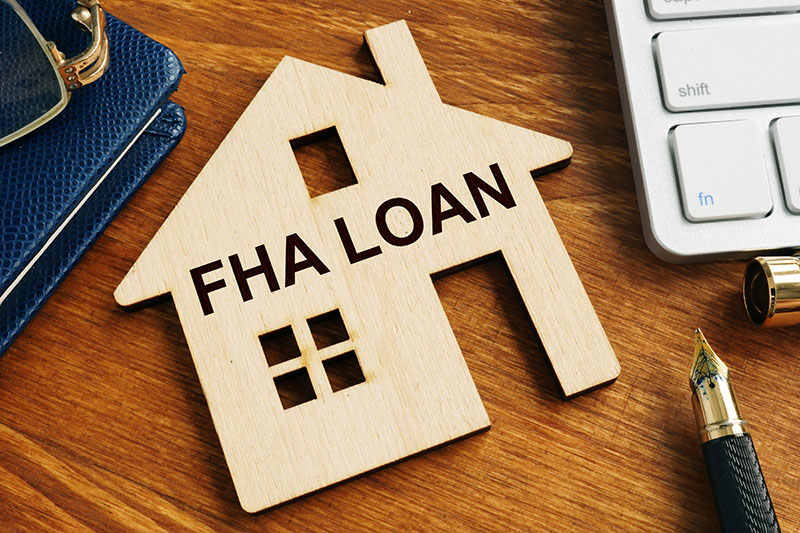
An FHA loan provides a government-insured loan with flexible loan options. Even experienced homeowners may need to plan for a long time for a new home purchase. Fortunately, FHA loans may help some buyers get into the home of their dreams with a lower down payment.
What is an FHA loan?
FHA loans are mortgages backed by the U.S. Federal Housing Administration. Lenders, such as banks and credit unions, that provide FHA loans provide funding for home purchases while requiring a lower down payment. Buyers may get into a new home with as little as 3.5% down.
Using conventional loans, a lower down payment requires the borrower to get private mortgage insurance. This special type of insurance protects the lender just in case the borrower is not able to pay. The cost of PMI is added to the monthly payment until the amount of the loan reaches 20%. FHA loans, on the other hand, do not require PMI because they are backed by the U.S. government. Additional scrutiny is often required during the loan application process using an FHA loan.
What is required for an FHA loan?
Many of the same documents are required for an FHA loan that any potential lender will want to see: employment history, appraisal, debt-to-income ration. A few additional stipulations are also attached to the FHA loan process. Buyers may have to bring 3.5% of the purchase price as a down payment, more if they have a credit score below 580. FHA loans are only available for the borrower’s primary residence.
Credit requirements may also be lower for FHA loans, given other factors demonstrate that the borrower is able to manage their money responsibly. Each lender looks at individual applications and may ask for additional documentation or explanations. They are often able to work with buyers with a lower credit score or shorter credit history than in other situations.
How FHA loans work
The Federal Housing Administration does not lend money; it insures mortgages. For many FHA borrowers, the minimum down payment is 3.5 percent. Borrowers can qualify for FHA loans with credit scores of 580 and even lower on a case by case basis. Debt to income restrictions are more lenient than with conventional loans. Since the FHA home loan is insured, the lender can offer you good terms including:
- Down payments as low as 3.5% of the purchase price
- Ability to finance some of the closing costs (which means they are included in the loan amount)
- Low closing costs
- Competitive interest rates
This type of loan is often easier to qualify for than a conventional mortgage and anyone can apply. However, FHA loans have a maximum loan limit that varies depending on the average cost of housing in each region. Here is the website to check the FHA loan limits.
With FHA loans, you’ll have to pay an Upfront Mortgage Insurance Premium (UFMIP) along with an annual Mortgage Insurance Premium (MIP). Conventional mortgages have private mortgage insurance (PMI) for loans that exceed an 80% loan to value, but they do not have any mortgage insurance premiums (MIPs). These Mortgage Insurance Premiums contribute to the Mutual Mortgage Insurance Fund. FHA draws from this fund to pay lenders’ claims when borrowers default.
Best fit for FHA home loan
Federal Housing Administration (FHA) home loans have more flexible lending standards.
- Borrowers with higher debt-to-income ratios
- Borrowers with less than perfect credit scores
- Homebuyers with small down payments and refinancers with little equity
Costs associated with FHA home loans
Each FHA loan has two mortgage insurance premiums that are required for FHA loans.
- An Upfront Mortgage Insurance Premium (UFMIP) of 1.75% of the loan amount which is financed into the loan amount.
- An Annual Mortgage Insurance Premium (MIP) of .55% and is paid each month as part of the monthly total monthly payment.
Pros of an FHA loan
Down payments as low as 3.5%. They are often the only option for borrowers with high debt-to-income ratios and low credit scores. Interest rates are typically lower than conventional loans
Cons of an FHA loan
The Upfront Mortgage Insurance Premium (UFMIP) and Annual Mortgage Insurance Premium (MIP) are required for FHA loans.
Have questions? Give us a call! One of our mortgage specialists would be happy to answer all of your questions.
**Intercap Lending is not affiliated with or acting on behalf of or at the direction of FHA, VA, USDA or the Federal Government.
